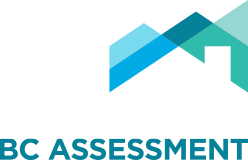What is BC Assessment?
BC Assessment is a provincial Crown corporation that classifies and values all real property in British Columbia. Each year, BC Assessment sends property owners a Property Assessment Notice telling them the fair market value of their property as of the uniform valuation date of July 1 in the prior year.
What is an assessment?
An assessment is the determination of a property's market value, classification and applicable exemptions each year. In early January, property owners receive a BC Assessment Property Assessment Notice showing the property's value, class and applicable exemptions. This assessment is the basis used by taxing authorities for determining the share of municipal and provincial property taxes owners will pay.
Why is the Assessment Notice mailed six months after the July 1 market value date?
BC Assessment's professional appraisers must review close to two million properties every year and this six-month period provides staff with the time they require to ensure the annual assessment roll is as fair and accurate as possible. Appraisers must analyze real estate transactions which can occur before and after the July 1 valuation date.
In the fall, appraisers also inspect new construction and development, verify the physical condition of each property as of the end of October and verify ownership through the Land Title and Survey Authority by November 30. Once this information is collected, appraisers complete the final assessment roll in early December. This work is audited for quality assurance and then notices are printed and mailed to all property owners on December 31 as required by the
Assessment Act.
What is market value?
Market value for assessment purposes in British Columbia is the most probable price of a property in an open market between a willing purchaser and seller.
How is an assessment of property made?
BC Assessment has a professional appraisal staff and an extensive database that is periodically updated with information gathered through appraisal inspections. Municipal and provincial agencies inform BC Assessment of land title changes, building permit approvals and zoning adjustments. BC Assessment also considers a property's unique characteristics, including location, size, layout, shape, age, finish, quality, carports, garages, sundecks and condition of buildings.
What is the relationship between property assessment and taxes?
Provincial and municipal governments (taxing authorities) pay for public services through property taxes, which are based on assessed value. BC Assessment determines the market value of properties and sends property owners a Property Assessment Notice. Then, tax authorities determine the property tax rate they will set to raise the revenue needed to pay for public services. The tax authorities apply this rate to the assessed value of properties and send property owners a Tax Notice.
Why did the value of my property change?
Property values usually change as a result of real estate market forces and these forces vary by property type and location. If a property was upgraded, the value will likely increase.
What is the difference between the Valuation Date and Physical Condition Date?
BC Assessment uses these two dates when assessing properties. Property owners with new construction, renovations, damage or permitted use changes can better understand how BC Assessment handles these situations by understanding more about these two key dates and how they differ. Learn more about Valuation Date versus Physical Condition Date.

